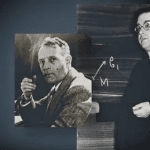People think in frames. To be accepted, the truth must fit people’s frames. If the facts do not fit a frame, the frame stays and the facts bounce off. ~George Lakoff
We are all familiar with people on the other side of a political or social issue who just don’t seem to get what is most important about the subject. What we probably haven’t realized is how common it is for every person to filter life through a personal grid. If we don’t have a place to put an idea or fact into a framework we already have or are prepared to develop, we won’t even realize we are blind to its very existence.
For example, this is something a family is responsible for helping children develop. Wise communities consciously work to introduce young people to a wider world of possibilities and realities beyond their small surroundings, knowing that a person’s viewpoint is shaped by what they see is available. In a free country, a person’s choices are only limited by their own personality and gifting along with what they believe is within their grasp, so the bigger their scope of view, the more they are likely to accomplish.
This natural tendency to self-limit our assumptions about the world isn’t just annoying or in control of our career choices. It affects the scientific world in subtle but deep ways. A person who has accepted naturalism — the framework where only “natural,” or material means is considered real — isn’t even going to have a space in her thinking for anything beyond self-guided impersonal materials and means.
November’s article from The Starting Point Project walks through this concept and how slow it has made the wider scientific community to accept the findings in real world fossils. And even when they did admit things weren’t what they anticipated, they still didn’t let the implication point anywhere but to slow, mindless, natural processes.





